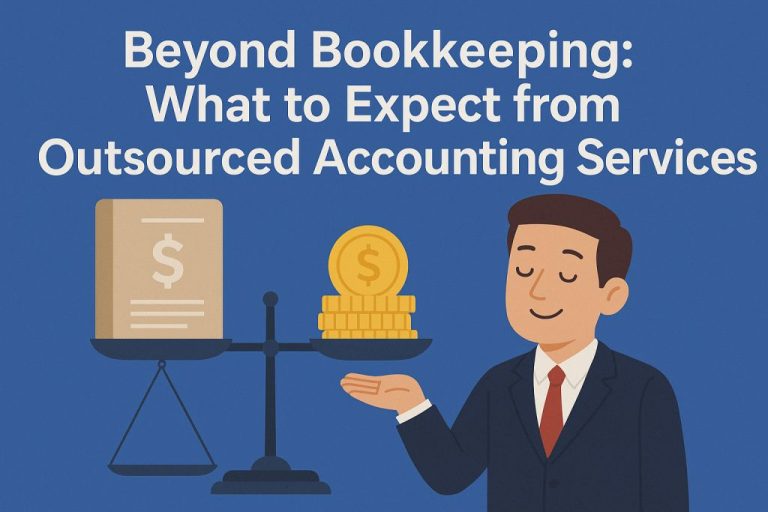5 Secrets of Successful Small Accounting Firms
Let’s face it—running a small accounting firm isn’t for the faint of heart. Between juggling clients, navigating tax laws, and trying to keep the lights on, it can feel like you’re constantly fighting an uphill battle. But here’s the good news: some firms are not just surviving—they’re thriving. How? They’ve cracked the code. Let’s uncover the 5 secrets of successful small accounting firms and how you can apply them to your own practice.
Why Small Accounting Firms Are Gaining Popularity
Bigger isn’t always better. Today’s clients crave personalized service, quick responses, and someone who understands their unique needs. Small firms can offer just that. With the right strategy, even the smallest team can punch above its weight in the industry.
The Importance of Discovering the “Secrets” Behind Their Success
Think of these secrets like the ingredients in grandma’s famous recipe. Knowing the right mix can turn a bland business into a Michelin-star success. Let’s break down exactly what those winning ingredients are.
Secret #1 – Niche Specialization
Understanding the Power of a Niche
You know the saying: Jack of all trades, master of none. Small firms that try to serve everyone often end up serving no one well. Focusing on a specific niche—whether it’s real estate investors, dentists, or tech startups—can make your services irresistible to that group.
Real-Life Examples of Successful Niche Accounting Firms
Ever heard of firms that focus only on eCommerce sellers or cryptocurrency investors? They exist—and they’re killing it. By speaking the language of their niche, they build instant credibility and attract loyal clients.
How to Choose Your Ideal Niche
Start by asking yourself:
- What industries do I already know well?
- Where is there low competition?
- Who do I enjoy working with?
Find the sweet spot where your expertise meets demand.
Secret #2 – Leveraging Modern Technology
Cloud-Based Accounting Software
Gone are the days of paper files and clunky desktop programs. Tools like QuickBooks Online, Xero, and FreshBooks allow you and your clients to access everything—anywhere, anytime.
Automation Tools That Save Time and Money
From automated invoicing to AI-driven expense tracking, the right tools can free up hours each week. That means more time focusing on clients and growing your business.
Security Considerations When Going Digital
With great tech comes great responsibility. Be sure to:
- Use strong passwords and 2FA
- Choose software with encryption
- Regularly back up your data
Trust is everything in accounting—protect it fiercely.
Secret #3 – Building Personal Client Relationships
The Value of Trust and Transparency
People want to work with someone they know, like, and trust. In a world of faceless corporations, small firms can offer a human touch that makes clients feel valued and understood.
Personalized Service vs. Generic Solutions
Would you rather get a canned email from a bot, or a phone call from someone who remembers your kid’s name? Personalized service creates emotional loyalty—and loyal clients stick around for the long haul.
Client Retention Tips That Actually Work
- Send birthday or holiday cards
- Host quarterly check-ins
- Offer value-added services (like business consulting)
Small gestures make a big impact.
Secret #4 – Smart Marketing Strategies
Local SEO and Google My Business Optimization
Want to be the first firm someone finds when they Google “accountant near me”? Optimize your Google Business Profile, collect reviews, and include local keywords on your website.
Creating Value Through Content Marketing
Start a blog. Share accounting tips on social media. Create YouTube videos answering common tax questions. The more value you provide upfront, the more trust you build with potential clients.
Social Proof: Reviews, Testimonials, and Referrals
Nothing sells your services better than happy clients. Ask for reviews after a job well done. Encourage referrals with incentives. Your best marketing asset? Word of mouth.
Secret #5 – Streamlined Internal Processes
Efficient Workflow Management
Use project management tools like Trello, Asana, or Karbon to stay organized. Standardizing your workflows reduces mistakes and improves turnaround times.
Team Communication Tools That Improve Productivity
Whether you’re remote or in-office, tools like Slack and Zoom keep everyone on the same page. Communication isn’t just key—it’s the whole lock.
Outsourcing Non-Core Tasks: When and How
You don’t have to do everything yourself. Outsource admin work, marketing, or even some bookkeeping tasks. Freeing up your time lets you focus on what you do best.
Bonus Tips for Long-Term Success
Continuous Learning and Industry Updates
The world of accounting is always changing. Subscribe to industry newsletters, take online courses, attend webinars—stay ahead of the curve.
The Power of Networking and Collaboration
Join professional groups, attend local business events, and collaborate with other professionals like attorneys or financial planners. The right connections can lead to game-changing opportunities.
Conclusion: Wrapping It All Up
Running a small accounting firm isn’t easy—but it is possible to thrive. By focusing on a niche, using modern tools, building strong relationships, marketing smart, and tightening up your operations, you’ll be setting yourself apart from the competition in all the right ways.
Remember, success isn’t about working harder—it’s about working smarter. These five secrets? They’re your blueprint.
FAQs
1. What’s the biggest challenge for small accounting firms?
Staying competitive with limited resources is tough. But focusing on a niche and using automation tools can level the playing field.
2. How can a small firm compete with larger firms?
By offering personalized service, faster response times, and deep expertise in a specific niche—big firms can’t compete with that.
3. What tools are best for small firm automation?
QuickBooks Online, Xero, Hubdoc, and Karbon are all popular choices that streamline tasks like invoicing, document management, and workflows.
4. How long does it take to build a successful accounting firm?
There’s no magic number, but most firms gain real traction within 1–3 years—especially if they follow the strategies we covered today.
5. Is offering low prices a good strategy for small firms?
Not really. Competing on price alone is a race to the bottom. Instead, focus on value—offer specialized, high-quality service that justifies your fees.







